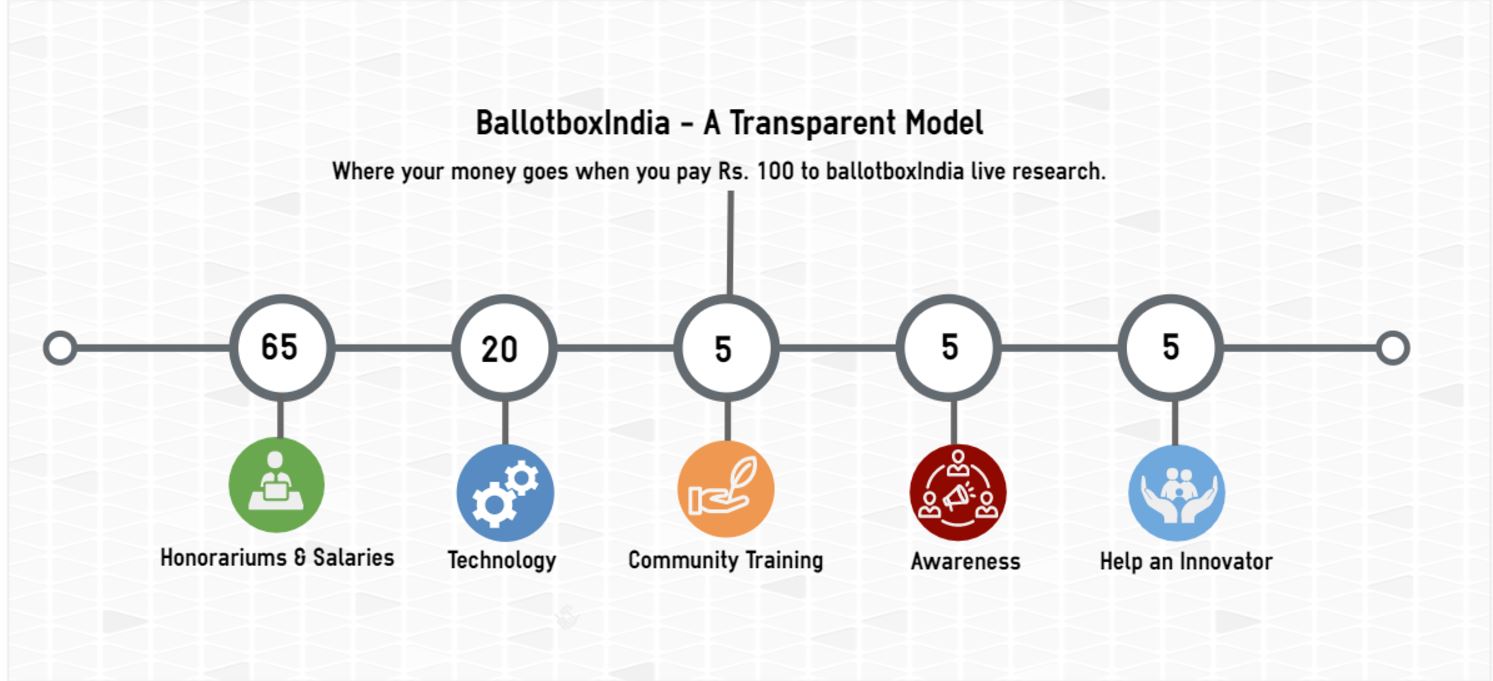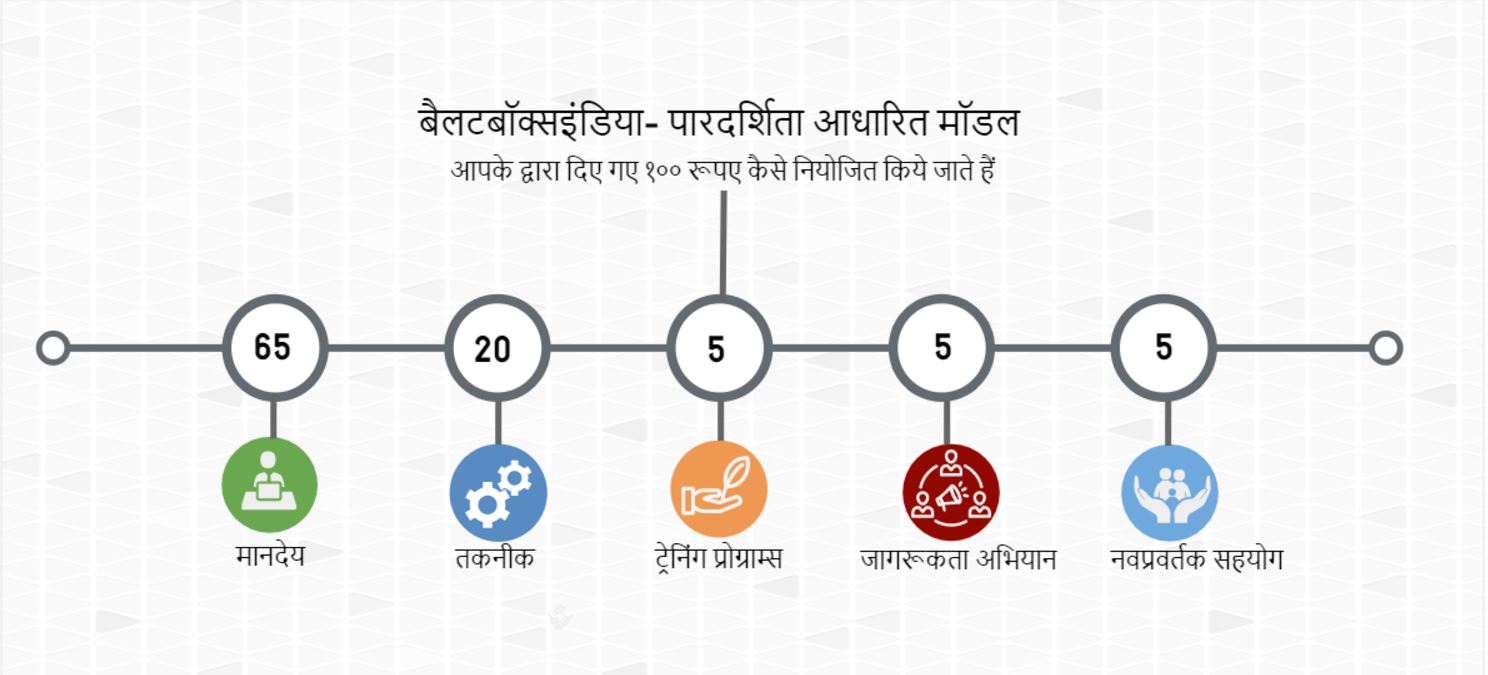DEMOCRACY & VOTER CONSENT FORMATION IN INDIA - CURRENT PROCESS, PROBLEMS AND NEED FOR REFORMS.
BACKGROUND
Mega Rallies and show of strengths, during Indian Elections, are considered not just a waste of money and time but a major conduit for black money, corruption, and moral decay in public life lending a big blow to the parliamentary democratic system.
These avenues are used without any responsibility or consequences to make statements about the opposition, advertise claims and promises to garner votes. In the times of elections, riches and those in power pretty much control every possible medium of communication like - Rallies, new social and digital media platforms or older news based mediums. A tremendous amount of money, affiliations and oligarchic practices subjugate the entire process.
1. SURROGATE/FAKE NEWS, MEDIA CYBER CELLS, DATA SECURITY- THREAT TO A HEALTHY DEMOCRACY.
The research will focus on the practice of candidate selection, political rallies and election campaigns. Which includes the covert and overt use of regulated media and unregulated digital social media platforms like Facebook, Twitter, Google, Whatsapp etc. This can be divided into subtopics.
1.1 FAKE NEWS, POST-TRUTH AND CONSENT MANUFACTURING, BEHAVIORAL DATA.
As reported widely during recently concluded elections the practice of hiring cyber-cells to run expensive consent manufacturing, campaigns on platforms like facebook, twitter, google and whatsapp is not only dangerous to democratic institutions, communal harmony, but a threat to national security with behavioral data of citizens acting under such fake news and stimulus under the control of foreign entities. The research is expected to build a report on legal framework available in India and propose policy changes.
1.2 SOCIAL MEDIA, FREEDOM OF SPEECH ARGUMENT, EQUALITY AND BUSINESS CLASSIFICATION
Google, Twitter, Facebook are mega digital marketing properties providing the public with free services like search and to digitally interact with others in return of being targeted with solicitations and promotions covertly or overtly by their paying customers, in the form of advanced and very expensive digital marketing techniques. The same route is abused by political players.
In this light can these organizations be classified as “Social Media”? And is “Freedom of Speech argument”, “equal opportunity” valid where “Naïve” and “Mega Influencers” are allowed with the same level of responsibility, but a very skewed opportunity inherent to the very complex, fiercely competitive and hugely expensive field of digital marketing?
The research proposes disallowing mega influencers like politicians, elected officials, and affiliate agencies the use of such platforms?
The regulation proposed should be extended till these platforms can provide proper archival/retrieval process of discourse by such mega influencers and affiliates including Groups, Pages, Hashtags, highly circulates/viral videos, messages and news items etc. by geography, dates, ownerships, and impact/reach made by such. Also, the data be available and should be under full control of the local civil society under proactive disclosure followed by RTI and governments of the lands. Data should never be cross owned by the foreign legal entity.
The research will consider this aspect and investigate the concept of local volunteers run “Democracy Mela” or ‘Janmela' as a viable and efficient alternative.
2. CURRENT OUTBOUND PROCESS OF ELECTION CAMPAIGNING VS PROPOSED INBOUND JANMELA – FREEDOM TO CAMPAIGN ARGUMENT
In the current time bound, outbound process, rallies, door to door campaigning, mounting media campaigns- Allows candidates with enough infrastructure and a bigger war chest to make a larger connect.
The process is taken over by superior media and technology with reach, and ability to own such talent/know-how.
The research investigates on the evolution of Cult based politics and its impact on local Cadre and council based political systems and its relation to such outbound electoral processes.
Another area considered is the amount of time/value spent, administrative hassle, the cost to citizen vs. information provided by “Star Campaigners” relating to issues of importance to the community. A few rallies and speeches can be taken for analysis.
3. APPROVAL VOTING & THE POLITICAL PARTIES FREEDOM TO CHOOSE CANDIDATES
A party candidate is selected through a transparent approval process in the constituency over a period and finalized with a comfortable time gap to sort out conflicts before the Janmela and voting start. Individual parties are free to define their selection process, follow them to choose election candidate, but should publish it in public domain. Candidate selection from the list of the party probable candidates should be documented and available for public review.
4. THE CONCEPT OF JANMELA
This ‘Janmela’ should be organized at convenient locations in the constituency prior to elections where all candidates can set up their stalls and provide information about themselves in a standard format including written, audio and visual mediums. Outlining their accomplishments and visions for their elected role with full responsibility and under oath.
These standards can be finalized by the election commission, local bodies or parliamentary discussion.
5. EXAMPLES OF SUCH QUESTIONS OR STANDARDS
Understanding of sustainable environmental practices, familiarity with the local and global culture, education, monetary, economic policy expertise, leanings, administrative or societal experiences, etc. Candidates can prepare their answer in line with their personal and party ideologies, and readily make it available to the voters.
The research aims to create such list based on the states vs national area of interests.
6. ROLE OF VOTERS
Here voters are expected to render their full support to this fair and participate in full spirits to get the material information and build an opinion about the right candidate before going to vote.
7. ELECTIONS FUNDING
Elections funding is cited as a major source of the following corruption. The researcher should investigate various limits attached to the election process, are there enough regulations to catch up with innovative means to violate such limits? E.g. Quid Quo Pro schemes with deferred benefits and affiliate rings to subvert the system. What are the legal frameworks and systems in place for India to avoid a situation where a foreign/local advertisement based media platform or Image marketing agency is used for consent manufacturing by collusion and advertisements revenues are passed on through affiliates, giving an impression of no direct violation of such limits.
The concept of Janmela also propose the election donations, instead of paid to individual parties should go to ‘Janmela’ funds, for a smooth operation of such events and processes, run by locally trained volunteers from civil society and committees.
 tag on profile.
tag on profile.




